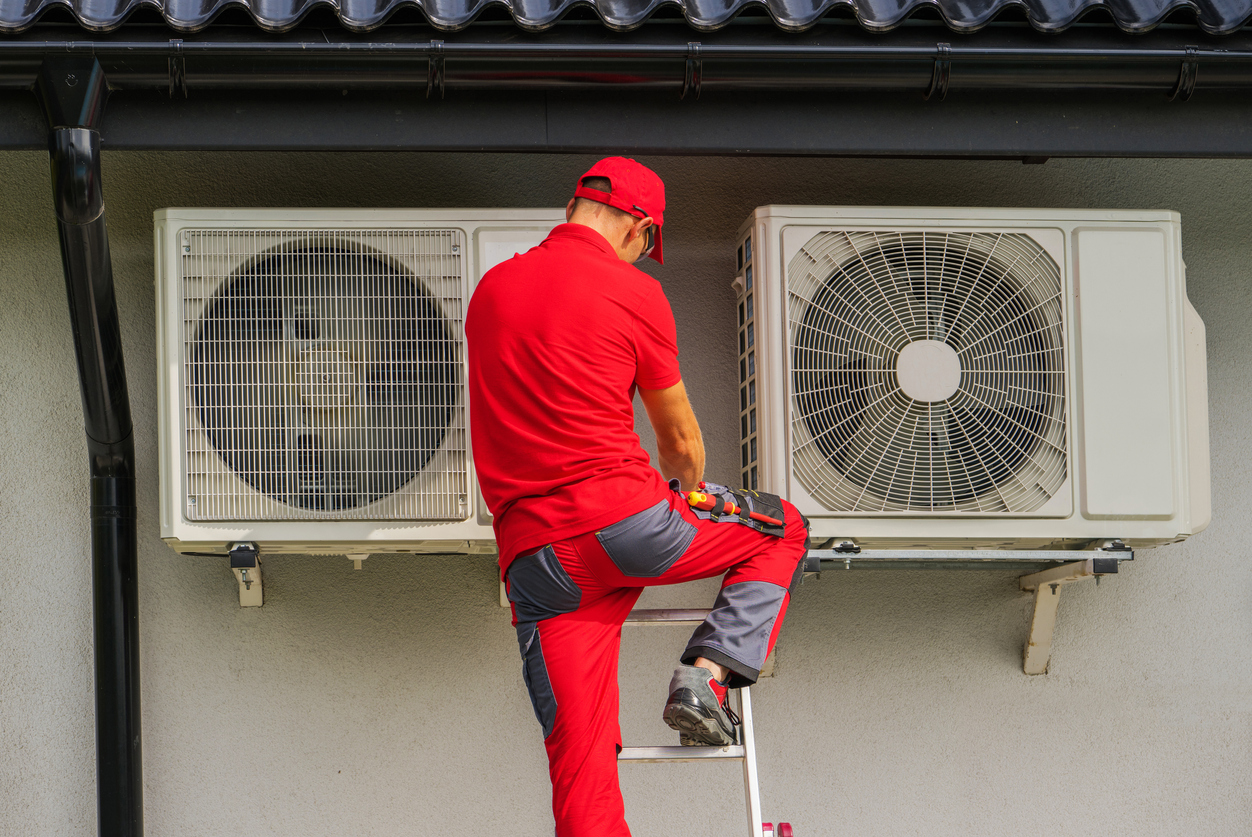How Does A Heat Pump Work In Winter
As winter draws near and the temperatures start to drop, many homeowners are looking for cost-effective ways to keep their houses cozy and inviting. The heat pump, a flexible heating and cooling system that can efficiently warm your home even in cold weather, is one increasingly popular solution. But how does a heat pump work in the winter?
In this article, the team at Furnasman Heating and Air Conditioning is taking a look at the inner workings of a heat pump to explain how it can keep your home warm and comfortable throughout the winter. For more information, keep reading!
Is a lot of energy used by heat pumps?
Heat pumps can be more energy-efficient than standard heating and cooling systems, saving you money on your utility bills. Heat pumps, unlike furnaces, transfer heat rather than produce it. Heat pumps extract heat from the air outside and move it within your home so you can keep it warm throughout the winter. The process is reversed during the summer months.
Heat pumps can be less costly to run than conventional units because they do not have to produce heat or cool air. In fact, heat pumps can save up to 50% more energy than a furnace or air conditioner.
It is essential to note, however, that the energy efficiency of your heat pump will be determined by a variety of factors, including the climate in your area, the size of the house you live in, and how well-insulated it is. In frigid conditions, your heat pump might have to work more diligently to keep your home warm, increasing your energy consumption. And, in turn, increase your monthly bills.
Do heat pumps truly save you money?
Yes, heat pumps can save you money in the long run, but the amount depends on a number of factors. For starters, heat pumps can be more energy-efficient, indicating they can help you save money on your energy bills. A heat pump can be a very cost-effective option if you live in a climate where the temperature rarely falls below freezing. This is due to the fact that heat pumps perform best in mild temperatures. In contrast, if you live in an extremely cold climate, a heat pump might not be able to meet your home's heating needs, and you might have to pair it with another heating source. This could boost your energy consumption and cancel out some of the possible cost savings.
Furthermore, the initial cost of a heat pump can be higher than other cooling and heating systems, so the reduction in utility bills may take several years to outweigh the initial cost. Just keep in mind that there are several government-funded rebates available to homeowners that can help you reduce some of the initial costs involved.
How cold is too cold for a heat pump to work?
Heat pumps perform best in mild temperatures and are most efficient when the temperature outside is above freezing. However, most heat pumps are built to operate efficiently in temperatures as low as -15 degrees Celsius. If the temperature falls below this range, however, a heat pump might be unable to gather enough heat from the air outside to keep your home warm.
When this occurs, your heat pump may enter a defrost cycle, causing the process of heating to be temporarily interrupted and the air emanating from your vents to feel cooler. In some cases, your heat pump may also use a backup heating source to boost the heating process, increasing your energy consumption and negating some of the possible cost savings. So, if you live in an area where the temperature drops well below freezing during the winter, it may be worthwhile to install a backup heating source, so you can keep your home as energy efficient as possible.
Can you use a heat pump with a gas furnace?
Yes, a heat pump can be used in conjunction with a gas furnace, which is known as a hybrid or dual heating system. The heat pump is the main heating source for your home in a hybrid heating system; however, when temperatures fall below a certain point (usually around -15 degrees Celsius), the gas furnace will come in to supplement the heat pump and keep your home cozy.
However, hybrid heating systems are more complex and costly to set up and maintain than just one heating unit, and they may not be the best option for every home or homeowner. Therefore, we suggest reaching out to the team at Furnasman Heating and Air Conditioning to consult with a professional and certified HVAC technician.
Should I turn my heat pump off in extreme cold?
If you turn off your heat pump in freezing temperatures, you risk damaging the system because the refrigerant inside the unit that is outside can freeze and lead to mechanical issues. Furthermore, turning off your heat pump can cause your house to lose heat swiftly, which can be uncomfortable in freezing weather.
Rather than turning off your heat pump, leave it operating and use its built-in defrost cycle to help hinder the accumulation of ice on the outdoor component. During the defrost cycle, your heat pump will briefly switch to a cooling mode to break down any ice that has developed on the outdoor unit, then return to the heating setting once the ice has been removed.
Alternatively, using a dual heating system such as a heat pump and furnace will enable you to switch between units as the temperatures fluctuate. This will enable you to remain energy-efficient without causing damage to your heat pump.
Are you ready to upgrade your level of interior comfort? If so, the team at Furnasman Heating and Air Conditioning is prepared to guide you through the process of selecting the suitable unit for your home and needs! Schedule a consultation appointment today! We look forward to hearing from you!






